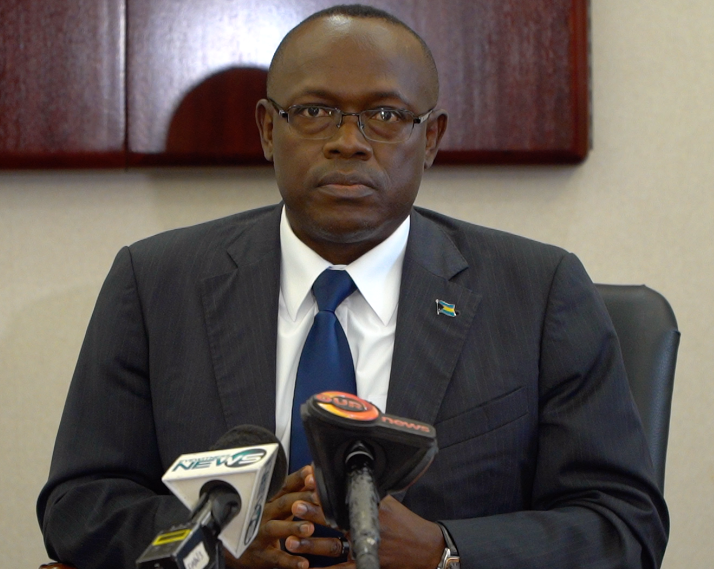“We have a debt crisis approaching and this administration appears to be ignoring it altogether; ostrich economics will not help”
NASSAU, BAHAMAS — Opposition Shadow Finance Minister and Progressive Liberal Party (PLP) Deputy Leader Chester Cooper yesterday slammed the 2021/2022 budget as “sheer fantasy”, as he blasted the government’s expenditure plans as “shameless and dangerous electioneering”.
Cooper, during his contribution to the 2021/2022 budget yesterday, said: “This budget is sheer fantasy and would stunt the growth in the country for decades unless its policies are reversed and reversed quickly.”
He said that while there was never any question that the pandemic would bring great economic hardship and lead to heavy borrowing, the Minnis administration’s navigation of the pandemic added to the dangers presented in the budget, which will ensure the situation gets worse before it gets measurably better.
“This is a budget characterized by short-term thinking, an ignorance of the severity of our debt position and reckless electioneering,” said Cooper.
“This administration believes that it would collect 18.3 percent of GDP (gross domestic product) or $2.24 billion this fiscal year after falling woefully short of this year’s modest target of $1.76 billion. It believes that this can be accomplished despite granting perhaps an additional $100 million in new concessions. This is simply unbelievable.
“It is more likely that revenue would be around 16.5 percent of GDP or $1.78 billion; not as bad as the current year but about $400 million short of the predicted target.”
Cooper also suggested the government will fail to realize projected revenues from a tax on gaming winnings.
“This seems imaginative. I assume this is projecting the new patron tax. This is an ongoing court matter and cannot be implemented July 1, and will not likely not be finished in court for months,” said Cooper.
“It is also under heavy opposition from patrons themselves. It is more regressive taxation that will likely drive gaming patrons to the black market to avoid paying a winnings tax.
“So, the reduction in regulated taxable revenue will shrink as a result of loss of business for the industry overall. The growth of the unregulated market would put us back where we were seven years ago, with the risk of large sums of money operating outside of the formal economy.”
He added: “On the expenditure side, we see shameless, dangerous electioneering that will have real negative consequences. Recurrent spending is increasing by more than $250 million with a $20 million increase in wage bills and a ramp-up in new hires even as you work with the IDB (Inter-American Development Bank) to contemplate rightsizing the public service.
“One looks at this budget and a sinking feeling occurs when we see an administration engaged in bloated election spending as we stare down the barrel of another crisis. When we look at the capital expenditure side, much of it is just not grounded in reality.”
Cooper warned that the country is in a “precarious place” with high deficits and significant foreign currency debt, warning that this path will lead the country into the hands of the International Monetary Fund (IMF).
“We have a debt crisis approaching and this administration appears to be ignoring it altogether. Ostrich economics will not help,” said Cooper.
Cooper claimed foreign direct investment is the fastest way to drive economic growth.
“We see no real plan to market or grow tourism. The Ministry of Tourism must now play a leading role rather than a supporting one,” said Cooper.
He further claimed his party’s Recover, Rebuild and Revolutionize “growth plan for three to five years” is a plan for Bahamian ownership, financial literacy and participation in the tourism sector and other sectors typically owned by foreigners.
He said the plan will focus on business development of the Grand Bahama Port Authority; lower value-added tax to 10 percent “while the economy catches itself”; raise the minimum wage to $250; harness natural resources and enhance Sovereign Wealth Fund laws; address increasing revenue generation; increase investment in infrastructure and technological upgrades, with new industries, new public-private partnerships and a robust Infrastructure Investment Fund; and expand sports, medical, religious and heritage tourism.






